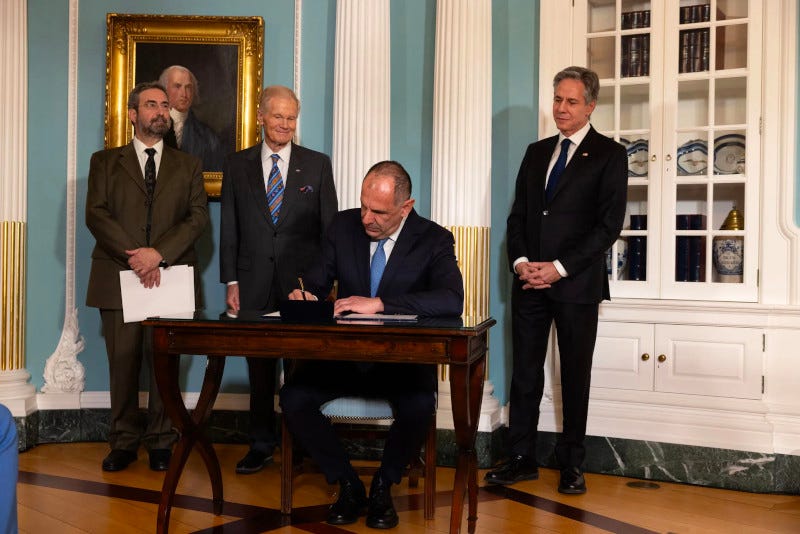Greece is Newest Artemis Accords Signatory
Becomes 35th Country to Embrace the Vision
NASA Administrator Bill Nelson participated in a signing ceremony last week with Greece’s foreign minister, Giorgos Gerapetritis, as his country became the 35th country to sign the Artemis Accords. The accords establish a practical set of principles to guide space exploration coopera…




